18-year-old Korean Choi Hye In, part of a new generation that will bear the hopes of this badminton nation in the coming decade, talked to Badzine recently about her hopes and plans for her personal badminton future.
Story and photos: Don Hearn and Tarek Hafi
The last two Olympics have been followed by the retirements of some of Korea’s top doubles stars – Ra Kyung Min in 2004, Hwang Yu Mi in 2008 – and now the 2010 Asian Games are looming, with Lee Kyung Won promising it will be the end of her road. Against this backdrop, Choi Hye In is one small girl stepping into some big shoes.
The resurgence of Korean women’s singles may have been the catalyst that finally put Korea into contention for the Uber Cup but it is Korea’s doubles players who have been the pillars and the two Lees are the only players this decade who have scored repeated wins over China’s top pairs.
Choi Hye In is now finishing her junior career with the road wide open before her as she has proven herself in all disciplines. At the German Junior Open in 2009, she won both doubles titles but this year, she defended those and added the girls’ singles titles for a triple crown in Mulheim. Then, a few weeks later, she reached the quarter-finals of the Asian Junior Championships, qualifying her for the Youth Olympic Games, and followed that up in April with a runner-up finish at the World Juniors in mixed doubles. At the Singapore Youth Olympics, Choi was unfortunately unable to progress past the group stage despite beating the #2 seed.
“When I first heard I’d qualified for Singapore, I was really excited because I was representing Korea at the Olympics but I also felt a lot of pressure and I really wanted to do well,” said Choi. “Also, we have a lot of talented players but this was my first tournament competing as the only Korean in my category so that already put pressure on me to perform. ”
Her experience at the Youth Olympics was not without its share of memories, however, as she had more to cope with than just the Olympic aura. Being part of a small contingent in an English-speaking host country threw some other unexpected curve balls her way.
“The day of my match against [2nd seed Naoko] Fukuman, we were getting notice of our matches via text message and we were told to be at the gym at 11AM,” Choi explains. “Then the morning of the match, we were getting on the bus at 9:20 and the Japanese player and her coach, who were riding the same bus as we were, came up and showed us that they’d just received a message saying the match had been changed to 10AM.
“It took at best around 40 minutes to get to the gym from where we were staying so we were changing and tying our shoes in the bus and we grabbed our racquets and were standing right at the door of the bus ready to bolt into the stadium as soon as the bus stopped. Fortunately, once we raced in there, we found the previous match hadn’t finished yet so we were able to relax a bit but it was still really stressful.
“On the first day, too, there was a mix-up but because the previous match went faster than expected so the organizers asked us to take to the court and I hadn’t finished warming up so it was really hard to settle into the match.
“It was hard in Singapore because everyone used English. I mean, we could communicate on a very basic level but asking detailed questions was impossible. There was a Korean interpreter but all of the staff were always together and we couldn’t tell which one was the Korean speaker so it was very difficult.”
Singapore was a kind of anti-climax for a successful final year as a junior. Choi clearly feels that the format did not play to her personal strengths: “I prefer to play doubles so I would have liked to have had the chance to compete in doubles, too. Not just in singles.
“In the future, I’d be happy if I could keep being competitive in two or even three events but I’ll have to be realistic and I’ll do whatever I can do.”
At this point, though, Choi is looking toward the future and is looking forward to a chance to train on the senior national team, a call that predecessors like Yoo Hyun Young, Bae Youn Joo, Sung Ji Hyun and Eom Hye Won all got before they finished high school.
“There has been talk of my being selected to join the national team but I still haven’t heard exactly when that will happen. At this point, I only have about 3 or 4 months left with my high school team and just a few more tournaments so as soon as those finish, I’d really like to start training with the national team as soon as I can and start learning from the veterans.
While Choi might be thought of by many to be a key to the future of Korean women’s badminton, she is still both modest and realistic about where she stands in relation to the team’s current stars.
“I’ve had the chance to train a few times with the senior national team players – for example, when I was preparing for the Youth Olympics – but I’m really looking forward to being able to train with them on a regular basis. All of them have been really good to me and they are very helpful whenever I have questions but Ha Jung Eun, for example, has been someone I’ve learned a lot from. They’ve all taught me a lot of new things on court, though.
“I suppose I’ve heard it suggested that I might be one of the future stars for Korean badminton but I can’t say that would be my prediction. Still, when people do say that about me, it really makes me feel I’d like to train all the harder to make it come true.”
Even if Choi Hye In is not invited to join the national team right away, she will still get her chance to train with some of Korea’s best in the new year as she’ll be joining the Daekyo Noonnopi pro team upon finishing high school. This is the team that began with Bang Soo Hyun at its founding and has since been home to such luminaries as Ra Kyung Min, Jun Jae Youn and currently, Hwang Yu Mi, Ha Jung Eun and Lee Yun Hwa.
Daekyo will be Choi’s first experience on a team with tradition. Hitherto, she has been a kind of franchise player for a school team that started from scratch with herself and her classmates back in 2002 when the city of Ulsan got its first elementary school badminton program.
“The way I started badminton was that the coach at our elementary school sent a newsletter to all the parents in the school, asking who was interested in having a badminton team at the school. Then the coach chose the team from among the interested kids who performed the best. At first, my mom was against it but I kept saying I wanted to so she finally gave her consent.
“My body wasn’t in such great shape when I was really young so my mom was afraid that if I got into sports, it would be too hard on me so she wanted me to concentrate on studying instead. But because I really wanted to play, she gave in and let me.
“I always liked playing ball sports and the opportunity that came along was the chance to be on a badminton team so that’s what I took up. There was no other sports team in my school.”
For 9 years, Choi has trained in Ulsan with no elder team-mates and no team tradition to live up to but this year, Beomseo High School consolidated its position as the number one girls’ high school team in the nation. They were so strong that they fielded two different teams at a nationwide tournament in July but when Choi talked to Badzine in September, her team was in the middle of a romp through the field at the Fall Championships in Gimcheon. Some of dynasties of Korean high school badminton have over 35 years of history and alumnae lists peppered with the names of All England champions.
As far as Korean badminton tradition as a whole goes, though, there is no shortage of role models. One important one for Choi Hye In just happens to come from Masan – not far from Ulsan and until recently part of the same province – and also began her career showing promise in both singles and doubles.
“The player I respect the most and would most like to take after is Lee Kyung Won. Like me, she is not particularly tall, and yet she is an excellent player. It’s everything about her – her playing style, her ability to perform under pressure, and the way she gets fired up on court – she is a very charismatic player.
“Another player I admire is Jun Jae Youn. She excelled as a player and now, after retiring, she has worked hard to get her masters and doctorate and will become a university professor. This is something I’d like to emulate, too.
“I am set to play for a pro team after graduating from high school but I intend to keep studying, as many of my team-mates are. I intend to continue taking courses through Hansung Digital University, and then later continue on to graduate school.”
For now, though, Choi Hye In has a junior badminton career to cap off and a senior one to begin. Her last major task for her school will be to capture Ulsan’s first ever badminton gold at the annual Korea National Sports Festival. After that, she is likely to earn a spot in the draw at the Korea Grand Prix in Gimcheon which, coming as it does in the week after the Asian Games, is not expected to attract many international players and will function more like a national championship, only with significant prize money and world ranking points on offer.
So remember the name and the cheery, hopeful young face because there is every chance that this youngster will be making her mark on world badminton in the years to come.

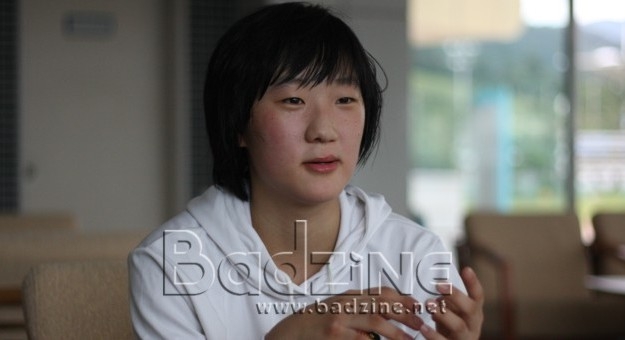
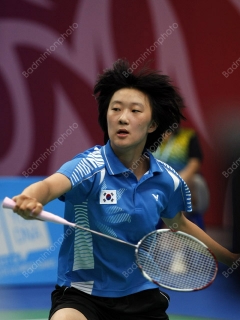
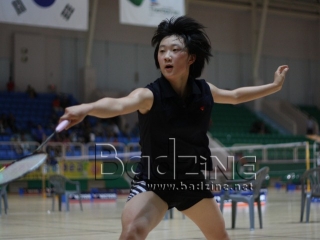
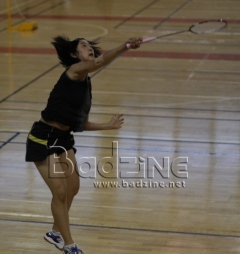
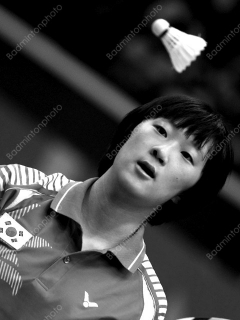
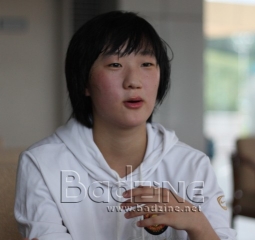

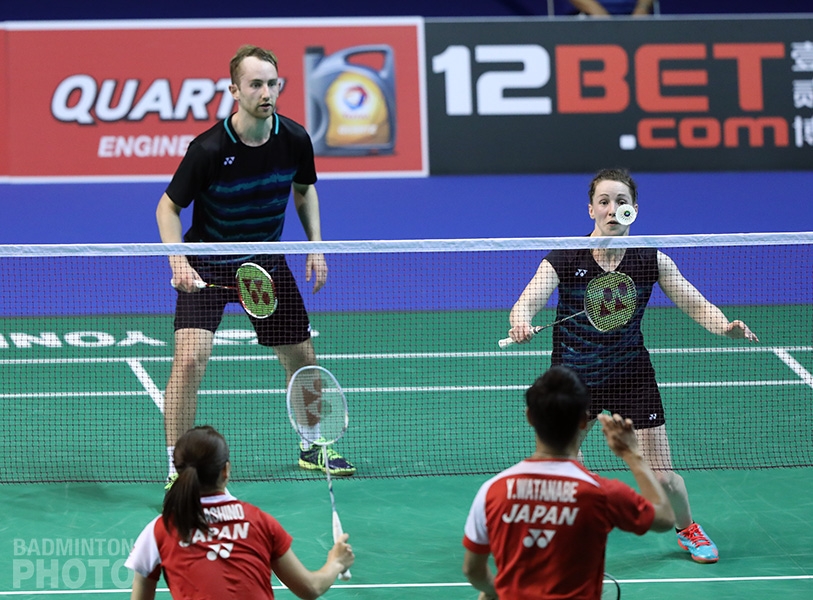
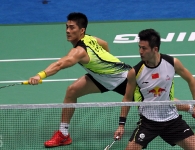
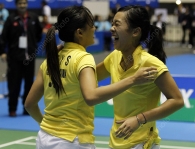
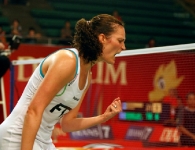
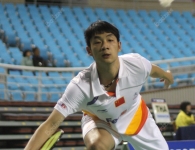
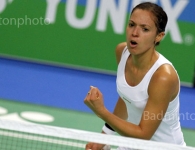
Leave a Reply